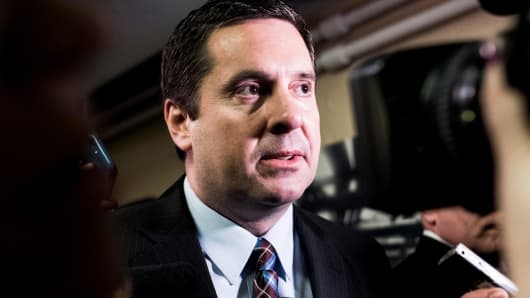Other liberals are insisting the memo's points aren't even that important even if they are true, because they believe the document is simply meant to distract the public from special counsel Robert Mueller's investigation of alleged Trump campaign collusion with Russia. President Donald Trump himself has reportedly noted that the memo may do just that.
So here we go again. The debate over the memo and its importance seems like another case of partisan alternate realities. The right believes this is a crucial document the public should see. The left thinks it's likely an unimportant exaggeration or even a falsehood that will damage the Mueller investigation.
But this partisan divide over this specific memo is misleading. The truth is the American people are overwhelmingly in favor of more transparency in government, and they have been since the days of the Vietnam War.
Polls showed widespread voter dissatisfaction with the level of transparency during the Obama administration. Polls show widespread voter dissatisfaction with the level of transparency during the Trump administration. And even before Trump, a Pew Research Center poll showed that only 23 percent of Americans trust the federal government to do the right thing even most of the time.
In other words, you can't just blame President Barack Obama, you can't just blame Trump, and you can't chalk this problem up to one partisan side or the other.
The past two years of American political theater should serve as the final argument that the public wants and deserves more government transparency and more accountability from our elected and appointed officials.
So what does that mean in the current memo debate?
Obviously, the Nunes memo should be released. If Schiff says it was altered, he should release the pre-edited version to the public along with a detailed list of any specific conclusions he disagrees with and why. He and his fellow Democrats on the Intelligence Committee should obviously also release the rebuttal memo they crafted in response to the Nunes document.
If the FBI and the DOJ believe this will harm their credibility and safety, then instead of telling that to the news media they should have rushed to a federal court to make that argument and asked a judge to block the release.
If anyone really believes the memo's release will undermine the Mueller investigation, let them prove it. So far, there's no evidence anything can stop Mueller and his team even in the face of several news reports over the last several weeks about their employment records and illicit and embarrassing text messages. That cat is already out of the bag.
It shouldn't be overlooked by anyone that while this memo was still being hidden from the public and the rest of Congress, that same Congress recently passed and President Trump signed a vast expansion of spying authorities.
Would that have happened if the entire Congress and the general public had seen the memo detailing serious abuses of those powers? Considering the fact that the bill passed the Senate with no votes to spare, it's a decent bet the bill could easily have been defeated with that needed extra information in the public's rightful hands.
Now of course no one is saying the public should have access to truly sensitive government secrets and documents. But it's always essentially been the duty of our publicly accountable president and publicly elected members of congressional intelligence committees to decide when and if to release information.
That shouldn't change, but those politicians need to pick up the pace and volume of what they reveal. To say there's a backlog of data the public deserves to know is an understatement if you remember the controversy Trump ignited months ago when he promised to unmask some of the details surrounding the 54-year-old assassination of President John F. Kennedy.
Secrets often have the same effect on the public as outright lies. They both hide the truth the public has a right to know. The result is that only 23 percent of the American people have any real trust in the government.
It's time to stop erring on the side of secrecy and hiding behind partisan fights as an excuse to keep the truth hidden. Releasing this intelligence memo is a first step. Hopefully much more information that will rightfully embarrass all sides in Washington will follow.
Commentary by Jake Novak, CNBC.com senior columnist. Follow him on Twitter @jakejakeny.
For more insight from CNBC contributors, follow @CNBCopinion on Twitter.



